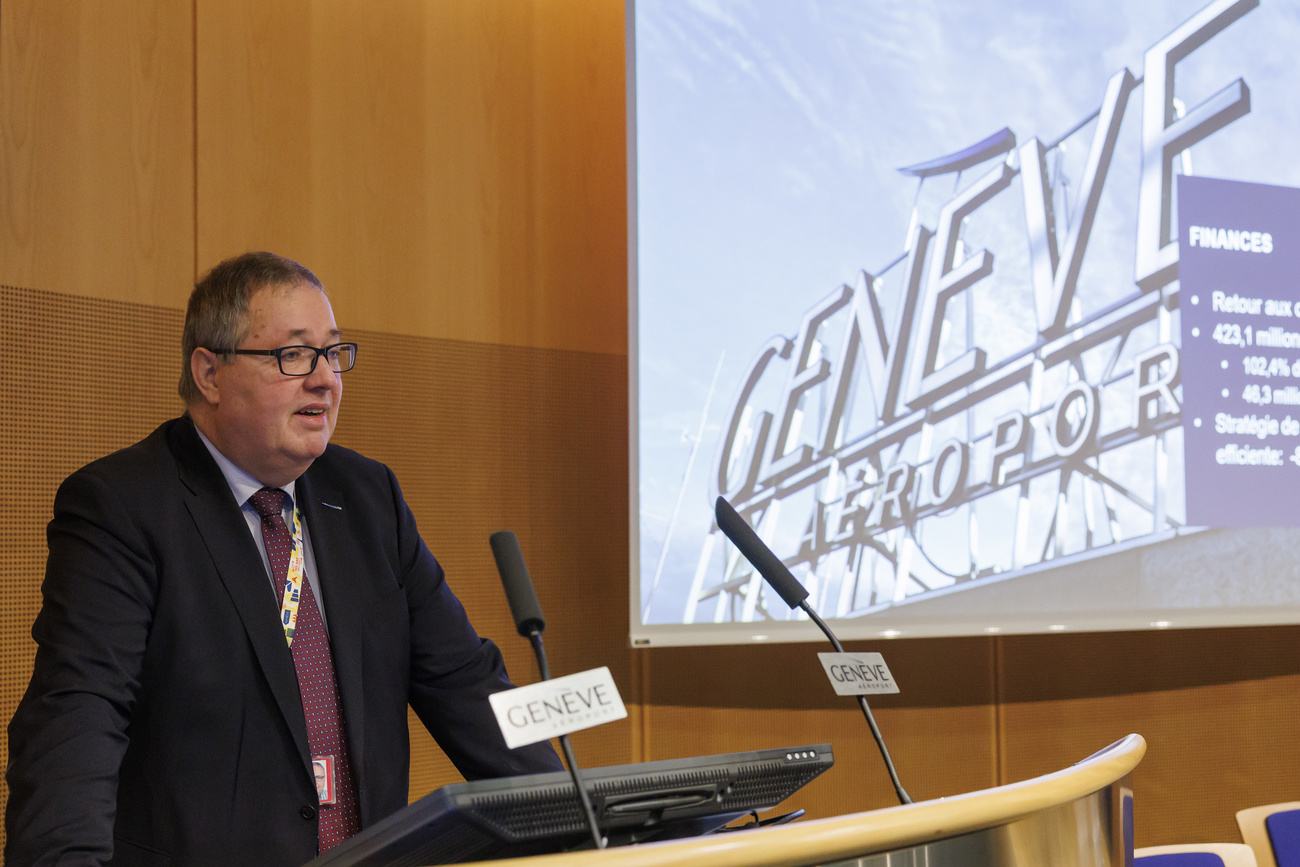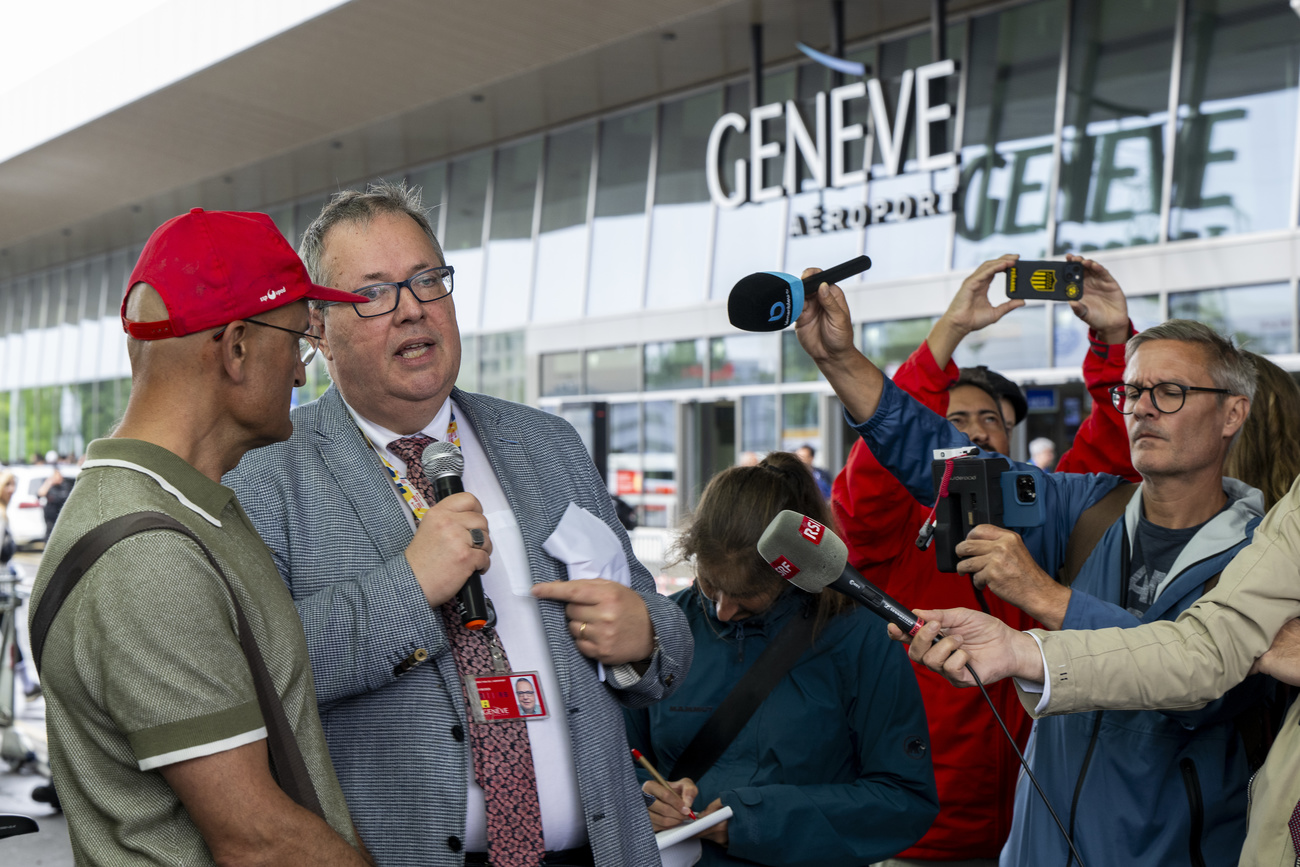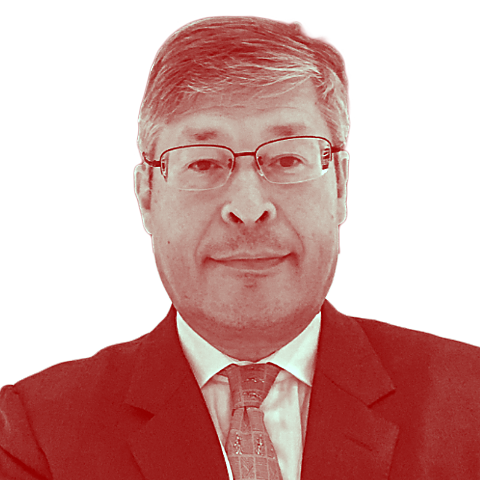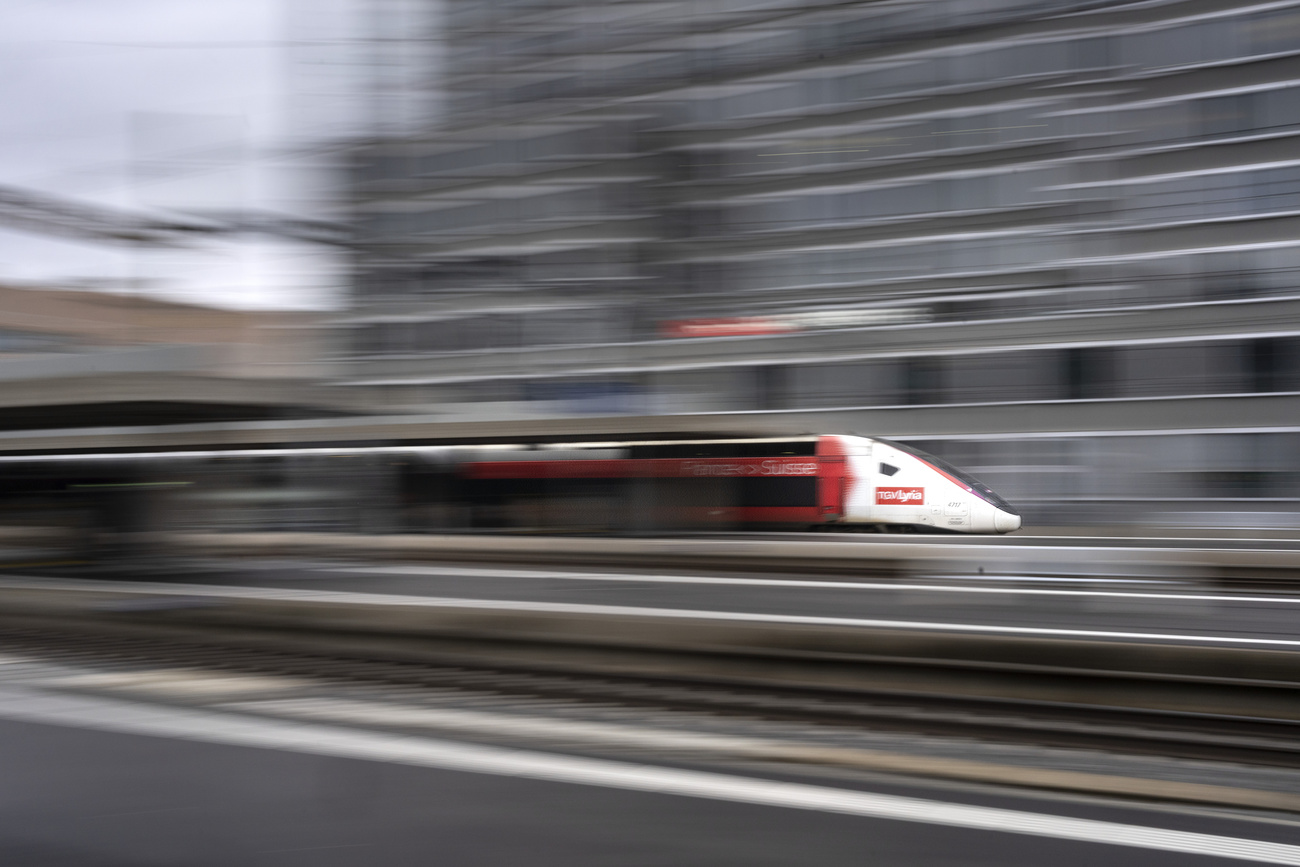Geneva Airport CEO sees clouds on horizon

The CEO of Geneva Airport, Switzerland's second largest, expects slow growth of passenger traffic over the next few years. But this, says André Schneider, won’t be due to environmentally conscious people who don’t want to fly.
Following the lean years of the pandemic, Geneva Airport has bounced back to healthy traffic levels and turnover. The SWISS and easyJet airlines hub made a profit of CHF46.3 million in 2022, thanks to the resumption of air traffic and its network of connections.
However, the independent public body went through a strike during the summer, following disagreements on changes in pay policy due to slow expectations of growth. SWI swissinfo.ch spoke to André Schneider, who has been CEO of Geneva Airport since 2016.
André Schneider started out in life as a professional musician before completing a doctorate in computer science at the University of Geneva. He worked for IBM and then spent ten years with the World Economic Forum (WEF), holding the positions Managing Director and Chief Operating Officer (COO).
Furthermore, he spent three years as vice-president of resources and infrastructure at the Federal Institute of Technology in Lausanne (EPFL). In 2016, he became CEO of Geneva Airport.
SWI swissinfo.ch: Mr Schneider, where do you go on holidays?
André Schneider: In the past, when I was working for WEF (World Economic Forum in Davos, Switzerland), I had to be a frequent traveller! But what I like most now is places where I can tour on my motorbike – say in the Alps, or the Black Forest, or on the Atlantic coast of Norway.
SWI: You were a senior executive in two public-sector organisations before (WEF, and the Federal Institute of Technology in Lausanne). What is different about Geneva Airport?
A.S.: The three organisations are very different, but I love a challenge and trying out something new. They do have one common point: all three of them have a high political profile. One unique feature of the airport is how heavily regulated it is.
Fortunately for me, I enjoy navigating a complex environment and, while dealing with the various interest groups, setting out in new directions and achieving real results for the public good. At the airport, I enjoy the long-term planning – up to 2050 – and the analysis of changes in society which that involves.
SWI: In future, you forecast an annual growth for the airport of no more than 1%. Does that mean people are giving up air travel to save the planet?
A.S.: Nearly 90% of our passengers are going to destinations in Europe. With over 130 destinations, our continental network is very dense. As we are approaching saturation, we can hardly offer any more continental travel. That explains our low growth forecast, far below the 5% figure we used to have.
Our strategy is to add a few intercontinental routes but they won’t contribute much to our volume of passenger traffic. To be sure, in view of the climate change crisis, people are wondering if they should cut back on travel, but for the present anyway this does not seem to be affecting our figures.
SWI: To make up for slow growth, could you better your operational efficiency and add to your non-air-transport activities?
A.S.: We are certainly aiming at more efficiency and profitability, but we can only do so much in view of our regulatory environment. Airport fees, which represent 50% of our revenue, have to correspond to services and so they incur costs.
In other words, we can only make a profit on the commercial services we offer, like restaurants, shops and parking. In general, and also due to the climate change crisis, we will just have to get used to little or no growth.
SWI: Who are your main competitors?
A.S.: When it comes to passengers, other airports do no really count as competition. Lyon airport is near enough, but it doesn’t offer the same services that we do. On the other hand, people in Fribourg and Bern sometimes have to choose between our airport and Zurich.
As regards the railways, we are competing a bit, all right, but it’s just for getting to Paris and Zurich. On the other hand, if we are going to win intercontinental routes from the airlines, we will be competing with the other airports in Europe, including Zurich.
SWI: What are the best airports in the world, do you think?
A.S.: Every airport is a different animal, and we are always trying to learn from the others. To give an example, I admire the way Montreal manages to handle snow conditions. Zurich airport is a model of efficiency. And Nice is worth looking at with regards to travel. Finally, Geneva deserves recognition for its sustainable development.
SWI: What is your most lucrative customer segment, and what do you do to attract them?
A.S.: The kind of passenger we make the most profit from is the “premium” traveller, that is, people who travel in first class, business class or premium economy. These are the people who travel for business as well as tourism or visiting family and friends.
Of course, the premium segment tend to spend more money in our airport restaurants and shops, as well as using paid services. To attract this group, the best we can do is to offer a good range of destinations, plus services like parking reservations or priority lanes for security checks.
SWI: In many airports abroad, they offer a whole range of “super VIP” services, like fast-tracking through customs. Is your airport doing anything like this?
A.S.: In the Schengen area, for legal reasons, we can’t offer fast-track customs inspection to some of the passengers. However, apart from the services you mentioned, we try to make the process of travelling through our airport as pleasant as possible for everyone.
For example, we measure the time it takes to get through security, customs and baggage return. We also have a special diplomatic service aimed at the 5000-odd heads of state and government ministers who come here each year on business in international Geneva.

SWI: Nearly half (45%) of your traffic is by EasyJet. If they decided to leave Geneva, would they be soon replaced by other airlines?
A.S.: In most airports, the main airline gives you 60% to 70% of the flights. So our situation is actually a bit more balanced than that. If easyJet decided to go somewhere else, which I think unlikely, the gap would be filled soon enough, when you think of the demand there is from our catchment area. Obviously, the adjustment would take a while.
SWI: As you mentioned, you are going to offer more intercontinental routes, like Zurich Airport does. Have you really got room for these in your existing schedule?
A.S.: Zurich Airport is a hub, and for that reason it will always have more intercontinental flights than we do. We are rather a “point-to-point” airport, so we depend completely on our local population. Our aim is to keep working in the long term to get more intercontinental routes and increase on our present range of 12 such destinations.
Yes, we do have room for these flights in our timetable, though we are completely full during some “rush-hour” periods, especially during the winter skiing season. Moreover, Geneva airport has one unusual characteristic: most tickets sold are first and business class, which means greater profitability for the airlines.
SWI: Your airport is an independent public body, whereas Zurich Airport is a publicly-traded company. Do you sometimes envy the flexibility that gives?
A.S.: An airport needs to take a whole range of interests into account, and the complexity of our structure makes us consider all these interests whenever a new idea is to be implemented. On the other hand, Zurich’s corporate structure means it can give priority to shareholder value. But in the end, Zurich is an airport that also has to work with its surrounding community, with the local population areas and the political level as well.
SWI: This spring, your airport had to deal with a strike over pay rates. How do you explain the fact that labour peace, which is otherwise invariably the case in Switzerland, didn’t work here?
A.S.: We are in the middle of negotiations right now, so I would prefer not to say anything at this stage. In view of our low growth in profitability, every level needs to adapt. I trust we will arrive at a satisfactory solution soon.
Edited by Samuel Jaberg/ds
Translated from French by Terence MacNamee

In compliance with the JTI standards
More: SWI swissinfo.ch certified by the Journalism Trust Initiative












You can find an overview of ongoing debates with our journalists here . Please join us!
If you want to start a conversation about a topic raised in this article or want to report factual errors, email us at english@swissinfo.ch.